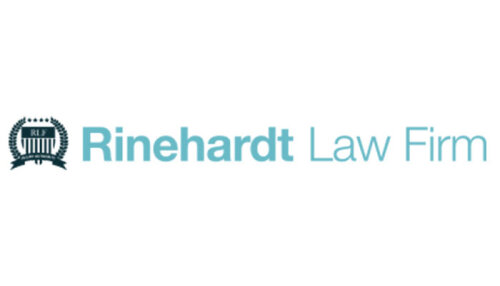Best Toxic Mold Lawyers in Ontario
Share your needs with us, get contacted by law firms.
Free. Takes 2 min.
List of the best lawyers in Ontario, United States
Note on jurisdiction: Ontario is a province in Canada. The guide below reflects Ontario, Canada law and practice. If you intended a U.S. jurisdiction, please specify the state or province so I can tailor the content accurately.
1. About Toxic Mold Law in Ontario, Canada
Toxic mold issues in Ontario are addressed through general housing, health and safety laws rather than a mold-specific statute. Tenants and landlords rely on the Residential Tenancies Act to demand repairs and safe living conditions. Homeowners and builders rely on building codes and common law for construction defects and moisture control. Workplace mold exposure falls under occupational health and safety regulations.
Mold related disputes often involve several overlapping legal avenues. These include tenancy protections, building standards, health and safety obligations, and, where relevant, human rights considerations. Mold presence can implicate health, property value, and environmental concerns, making careful legal counsel important.
Indoor dampness and mold are linked to respiratory symptoms and asthma, especially for children and sensitive individuals.
Source: Public Health Ontario explains that indoor dampness and mold can worsen respiratory conditions and overall health risks. Public Health Ontario
The Ontario government provides statutory frameworks and guidance for housing, health and safety. The Residential Tenancies Act, the Ontario Building Code and related regulations are central to mold related matters in rental, construction, and workplace contexts. Residential Tenancies Act, 2006 establishes landlord obligations to maintain rental units in a fit condition, including addressing moisture and mold concerns.
For housing quality and mold prevention guidance, residents can also consult the Canada Mortgage and Housing Corporation and public health resources. CMHC mould information and Public Health Ontario mould guidance.
2. Why You May Need a Lawyer
Legal assistance can be essential when mold issues involve health risks, financial losses, or complex statutory duties. The following real world scenarios illustrate concrete reasons to consult a toxic mold lawyer in Ontario, Canada.
- A tenant discovers persistent mold after a leak and the landlord fails to remediate promptly, despite written notices. A lawyer can help enforce repairs, seek rent abatement, and pursue compensation for health impacts.
- A condo or apartment building has chronic moisture intrusion, creating mold in multiple units. A lawyer can advise on diligence against the board, facilitate collective claims, or pursue governing body remedies.
- An employee suffers mold related health symptoms at work and the employer has not addressed ventilation or containment. An attorney can assess OHSA obligations and potential remedies, including workplace accommodations.
- A homebuyer uncovers hidden mold after purchase and suspects seller misrepresentation or undisclosed defects. A lawyer can explore contract remedies, disclosure duties, and potential damages.
- An insurance claim for mold remediation is denied or insufficient. A lawyer can evaluate coverage, negotiate with the insurer, and pursue appropriate redress.
- A building contractor or builder failed to meet moisture control standards, resulting in mold. A construction defect claim or liability action may be appropriate with legal guidance.
3. Local Laws Overview
This section highlights the principal statutes and regulatory schemes most commonly implicated in Ontario mold matters. It explains how these laws interact in typical mold related disputes.
- Residential Tenancies Act, 2006 - Sets out landlord obligations to maintain rental premises in a good state of repair and fit for habitation. Tenants may seek remedies for mold through the Landlord and Tenant Board consistent with the Act and its regulations.
- Building Code Act, 1992 and the Ontario Building Code - Establish moisture control, ventilation, and construction standards intended to prevent moisture problems that lead to mold in new and existing structures. These standards apply to new builds and major renovations as well as ongoing maintenance of properties.
- Occupational Health and Safety Act - Governs health and safety in workplaces, including indoor air quality and proper ventilation to prevent mold related hazards for employees. Employers have a general duty to provide a safe working environment.
- Ontario Human Rights Code - Protects employees and tenants from discrimination or failure to accommodate disabilities related to health conditions caused by mold exposure, when applicable.
Notes on dates and changes: the Residential Tenancies Act, 2006 remains the primary statutory framework for rental housing in Ontario, with amendments over time to strengthen tenant protections. The Building Code Act and Ontario Building Code are periodically updated to reflect best practices in moisture management and indoor air quality. For official texts and updates, see the linked sources below.
Key government and official resources for mold related issues include:
- Residential Tenancies Act, 2006 - landlord obligations and tenant remedies in rental housing.
- CMHC mould information - guidance for homeowners and landlords on mold prevention and remediation.
- Public Health Ontario mould guidance - health risks and preventative measures related to dampness and mold.
4. Frequently Asked Questions
What is toxic mold and how can it affect me?
Toxic mold refers to certain species that produce mycotoxins and may trigger health issues. Exposure can cause coughing, wheezing, allergies, and in some cases more severe respiratory problems. If you have ongoing symptoms in a mold affected home or workplace, consult a physician and a solicitor to evaluate options.
How do I know if my landlord must fix mold in a rental unit?
The Residential Tenancies Act requires landlords to maintain the rental unit in a good state of repair. If mold results from moisture or leaks, the landlord may be obligated to remediate promptly. Document issues and notify the landlord in writing.
What should I do if I find mold when I move into a rental?
Document the mold with photos and write a dated notice to the landlord. If the issue is not addressed within a reasonable timeframe, seek advice from a lawyer about possible remedies and timelines.
How long does a typical mold remediation take in Ontario?
Remediation duration depends on extent and access. Small localized mold may take days; extensive moisture intrusion can require weeks. A lawyer can help set expectations and coordinate remediation with tenancy timelines.
Do I need a lawyer for mold issues in Ontario?
While some tenants handle small matters informally, complex cases involving health, significant damage, or disputed responsibilities benefit from legal counsel. An attorney or solicitor can advise on remedies and negotiate with landlords or insurers.
What is the typical cost of hiring a toxic mold lawyer?
Legal costs vary by case complexity and region. Initial consultations often range from free to several hundred dollars. Ask for a written retainer and estimated costs before proceeding.
Where can I file a mold related complaint in Ontario?
For tenancy disputes, the Landlord and Tenant Board handles applications related to repairs, maintenance and rent obligations. For construction defects, consult a solicitor about remedies under common law or building code related claims.
When can mold be considered a disability under the Ontario Human Rights Code?
Disabilities arising from health conditions caused by mold exposure may trigger accommodation duties in the workplace or housing context under the Human Rights Code. A lawyer can assess eligibility and assist with accommodations.
Can a seller be liable for mold in a recently purchased home?
Yes, if mold was concealed or misrepresented during the sale, a buyer may pursue remedies for misrepresentation or disclosure failures. Legal options include contract remedies and potential damages assessed by a solicitor.
Should I contact my insurer about mold damage right away?
Notify your insurer promptly after discovering mold if you plan to claim remediation costs. A lawyer can help interpret policy language and communicate with the insurer to avoid coverage gaps.
Do I need to get a mold inspection before taking legal action?
An independent mold assessment often strengthens a claim by establishing the extent and source of moisture. A lawyer can recommend qualified inspectors and ensure reports align with legal standards.
What is the difference between a civil lawsuit and a tenancy dispute for mold?
A tenancy dispute seeks remedies under the Residential Tenancies Act for rental housing, while a civil lawsuit can pursue damages outside the tenancy framework, such as construction defects or personal injury claims.
5. Additional Resources
- Public Health Ontario - Provides health guidance on mold and dampness in homes and workplaces. Public Health Ontario
- CMHC - Offers practical information on mold prevention and remediation for homeowners and landlords. CMHC mould information
- Ontario Residential Tenancies Act, 2006 - The primary statute governing rental housing, with associated enforcement through the Landlord and Tenant Board. Residential Tenancies Act, 2006
6. Next Steps
- Document the mold issue thoroughly with photos, videos, and a written log of dates and health symptoms. Do this within 24 to 48 hours of discovery.
- Review your rights under the Residential Tenancies Act and related housing guidance. Save copies of all notices to the landlord and responses received.
- Notify the landlord in writing, describing the mold problem and requesting remediation within a reasonable timeframe, and keep a copy for records.
- Consult a lawyer or solicitor who handles toxic mold or housing law to evaluate remedies, including repairs, rent adjustments, or compensation.
- Obtain an independent mold assessment if needed and share the report with your lawyer and the landlord to support your claim.
- If the landlord does not respond adequately, consider filing an application with the Landlord and Tenant Board and discuss interim remedies.
- Coordinate health care, worker protections, and insurance needs if health concerns or workplace exposure are involved, and follow medical and insurer guidance.
Lawzana helps you find the best lawyers and law firms in Ontario through a curated and pre-screened list of qualified legal professionals. Our platform offers rankings and detailed profiles of attorneys and law firms, allowing you to compare based on practice areas, including Toxic Mold, experience, and client feedback.
Each profile includes a description of the firm's areas of practice, client reviews, team members and partners, year of establishment, spoken languages, office locations, contact information, social media presence, and any published articles or resources. Most firms on our platform speak English and are experienced in both local and international legal matters.
Get a quote from top-rated law firms in Ontario, United States — quickly, securely, and without unnecessary hassle.
Disclaimer:
The information provided on this page is for general informational purposes only and does not constitute legal advice. While we strive to ensure the accuracy and relevance of the content, legal information may change over time, and interpretations of the law can vary. You should always consult with a qualified legal professional for advice specific to your situation.
We disclaim all liability for actions taken or not taken based on the content of this page. If you believe any information is incorrect or outdated, please contact us, and we will review and update it where appropriate.










